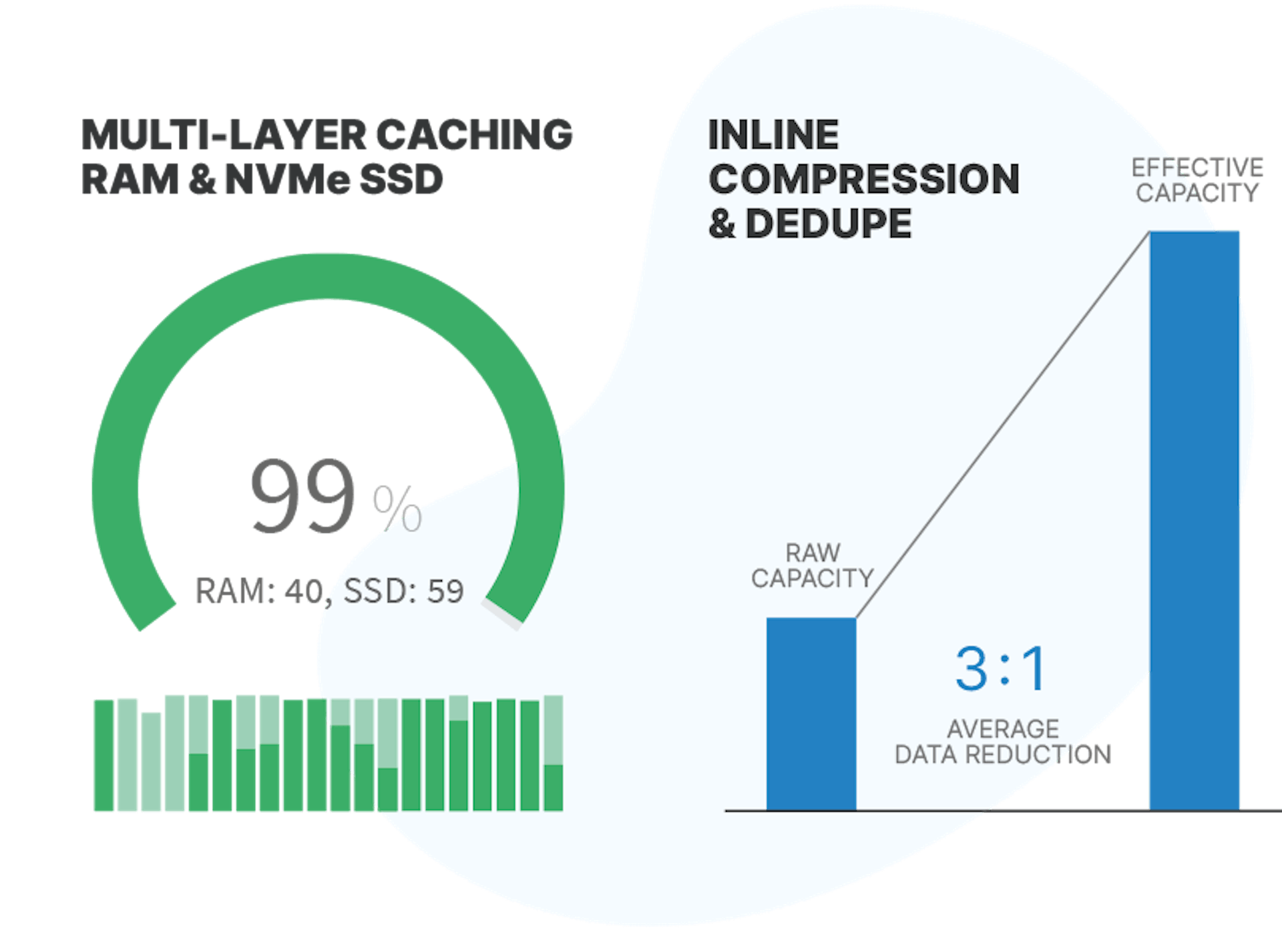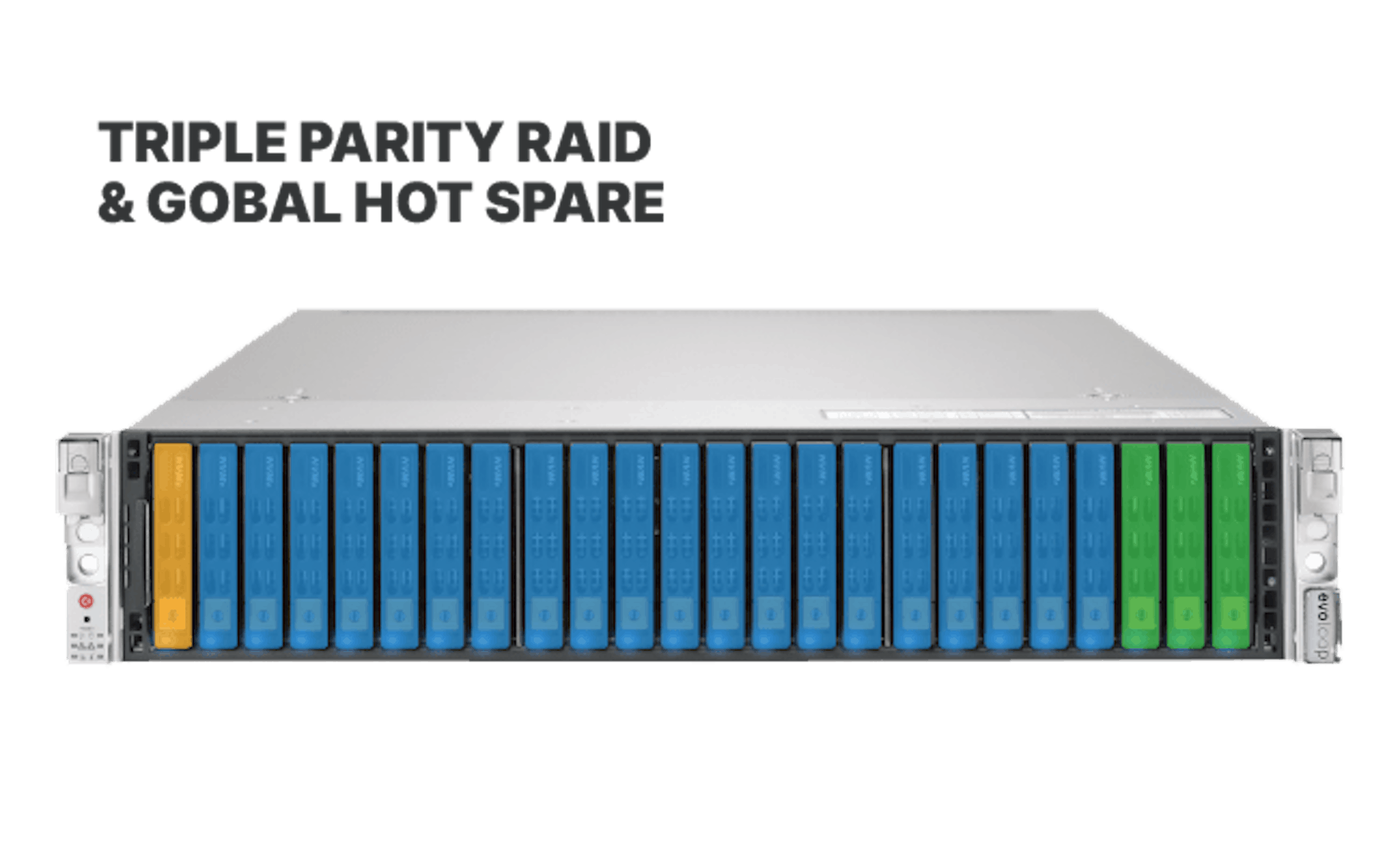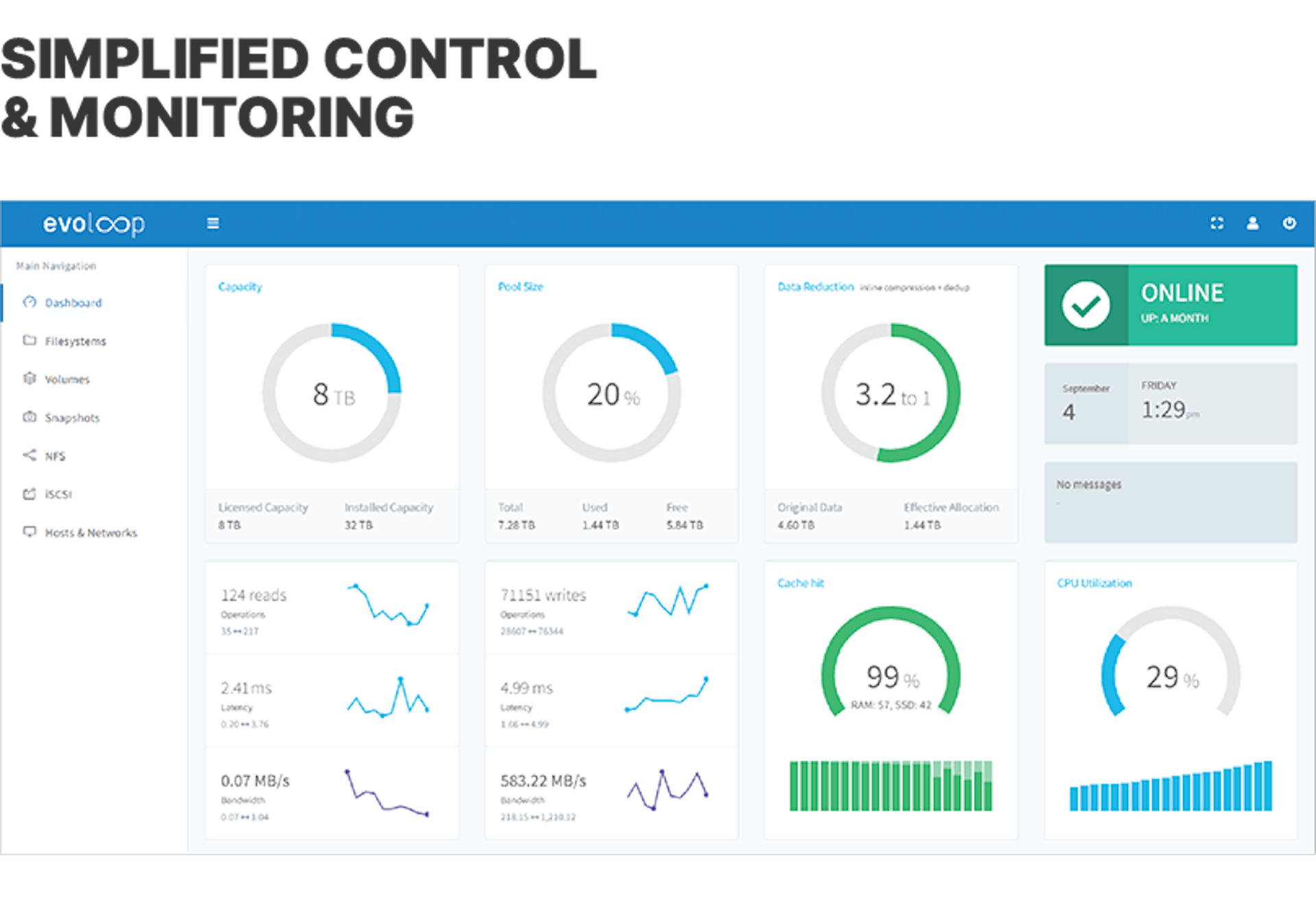SDS Hybrid Series
Evoloop Hybrid arrays merge storage flexibility with the performance of solid-state flash drives and the capacity of hard disks.
Software Defined Storage is perfect for organizations seeking flexible, scalable, and cost-effective storage solutions tailored to their specific needs and workloads.


What are the key features?
SDS Hybrid series is designed to balance performance and cost-effectiveness.
Eternal Storage
Preconfigured with triple parity RAID and a global hot spare, alongside a write-back cache on NVMe SSDs, ensuring unparalleled data integrity and resilience.

Always-On Data Redection
Inline compression and deduplication, expansion without downtime, thin and thick provisioning, ensures worry-free efficient space utilization.

Always High Performance
Achieve solid-state performance at spinning-disk capacity and cost, leveraging a multi-layer caching system for optimized read and write operations.

Modern Management Tools
A robust web-based console for streamlined management and monitoring, alongside certified workloads tailored for specific applications to simplify configuration.

Hybrid Series: Scalable, Cost-Effective, Efficient
By integrating our hybrid solution, you can effortlessly scale capacity while optimizing costs. With an average data reduction ratio of 3:1, enjoy substantial savings without compromising performance or reliability.
Multi Level Caching
Inline Compression + Deduplication
Intel Accelerator Engines
NVMe Solid State Drives
10 GbE up to 100 GbE

No compromises for data integrity and resilience
With Evoloop SDS storage solutions, data integrity is paramount. Triple-parity RAID, coupled with a global hot spare, ensures resilience. You can lose up to three drives without any data loss, safeguarding your critical information.
Triple Parity RAID
Global Hot Spare
Hot swappable drives
Bad block scan + HDD S.M.A.R.T.
Enclosure monitoring through LEDs


Simplify IT monitoring and control from your browser
Evoloop SDS storage solutions come equipped with an intuitive HTML5-based dashboard, ensuring effortless configuration while prioritizing data safety and providing real-time insights.
HTML5 dashboard
Real time data visualization
Efforless configuration
Performance counters
Preconfigured Workload Profiles

Technical Specifications
Three models to embrace all your needs.
max**
H2040
Rack Units
2U
Redundant Power Supply
Yes
CPU
2x Intel Xeon Scalable 2nd gen.
RAM
128 GB
Network
4x 10 GbE RJ45
Network (optional)
25 GbE - 40 GbE - 100 GbE
HDD
12x 4 TB SAS3 12Gb/s
Storage License
min 8 TB max 32 TB
Average Data Reduction**
3:1
Average Effective Capacity
min 24 TB max 96 TB
Read Cache
NVMe SSD 200 GB
Write Cache
NVMe SSD 80 GB RAID 1
Performance
Up to 260,000 IOPS. Based on specific workloads.
Triple Parity RAID
Yes
All-Inclusive License
Included
max**
H2080
Rack Units
2U
Redundant Power Supply
Yes
CPU
2x Intel Xeon Scalable 2nd gen.
RAM
192 GB
Network
4x 10 GbE RJ45
Network (optional)
25 GbE - 40 GbE - 100 GbE
HDD
12x 8 TB SAS3 12Gb/s
Storage License
min 16 TB max 64 TB
Average Data Reduction**
3:1
Average Effective Capacity
min 48 TB max 192 TB
Read Cache
NVMe SSD 300 GB
Write Cache
NVMe SSD 100 GB RAID 1
Performance
Up to 260,000 IOPS. Based on specific workloads.
Triple Parity RAID
Yes
All-Inclusive License
Included
max**
H2160
Rack Units
2U
Redundant Power Supply
Yes
CPU
2x Intel Xeon Scalable 2nd gen.
RAM
128 GB
Network
4x 10 GbE RJ45
Network (optional)
25 GbE - 40 GbE - 100 GbE
HDD
12x 16 TB SAS3 12Gb/s
Storage License
min 32 TB max 128 TB
Average Data Reduction**
3:1
Average Effective Capacity
min 96 TB max 384 TB
Read Cache
NVMe SSD 400 GB
Write Cache
NVMe SSD 120 GB RAID 1
Performance
Up to 260,000 IOPS. Based on specific workloads.
Triple Parity RAID
Yes
All-Inclusive License
Included
- *
All capacities are expressed in Base 10: 1 MB = 1,000,000 bytes.
- **
Average data reduction ratio is calculated based on the capacity savings achieved through data deduplication and data compression. Actual data reduction ratio can vary and depend on individual environments and data structures.